KYC in ORider - Obyte identity management
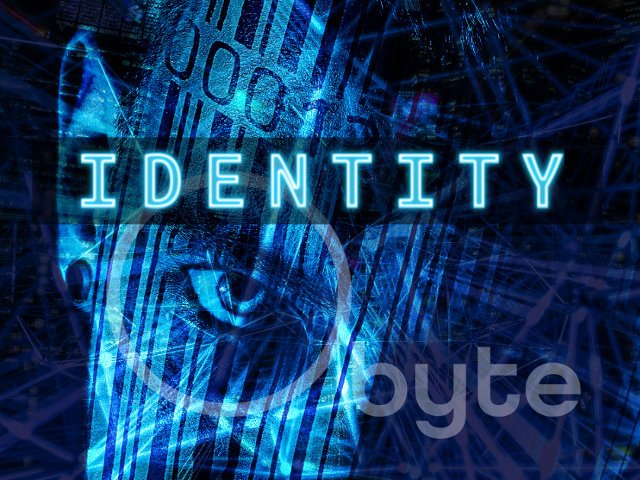
A recently introduced feature brings real identities to ORider to make it somewhat safer for people to share their rides with strangers. It also helps passengers to select rides of drivers that have their drivers license verified.
In the ride listing page now the real name of the driver is shown and in addition to that a green ID badge indicates if the name was verified using a drivers license. In case the name was verified with an identity document other than a drivers license, no badge is displayed. No name means no KYC check was done at all.
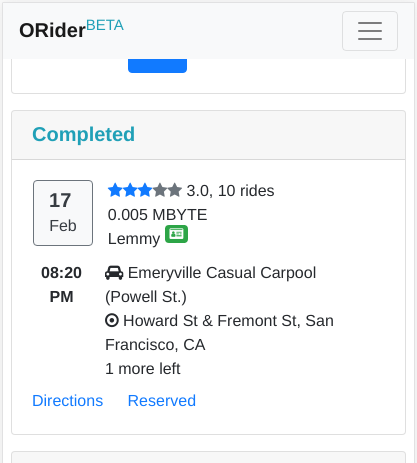
Real names and verified drivers license badges
Drivers and passengers can now use their real name attested Obyte profiles to set their name for their accounts and verify their drivers license. Obyte users are likely familiar with attestations and real name profiles, but if you have never heard of it, here is a great introduction about how it works: Bringing Identity to Crypto.
Two new controls have been added to the account screen. One is for displaying the real name with a "Request" button to trigger the KYC process. The second one shows if the real name was confirmed using a drivers license, see below:
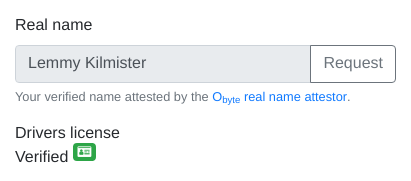
Important to note that ORider does not ask the user to upload pictures of drivers licenses, id-cards or passports. Instead, it uses the Obyte attested profiles feature to request certain identity information from the user. ORider only needs the first name and last name of the user and the type of the identity document to verify if the user has a valid drivers license. There is absolutely no need to ask any more information other than those and thanks to Obyte, the ORider chat bot can request what's needed only.
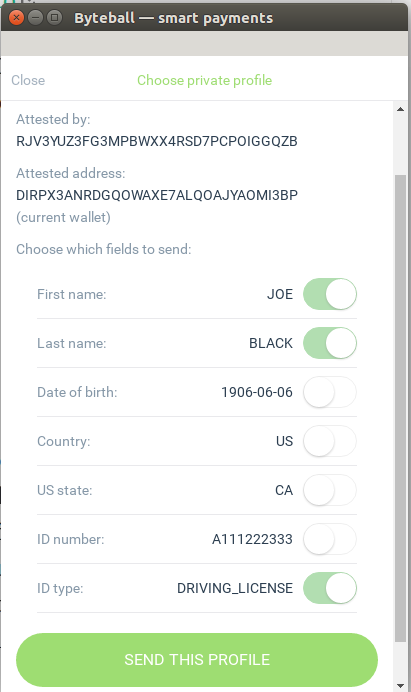
Attested profiles - the Obyte approach to KYC
The Obyte platform makes it extremely convenient for developers to integrate KYC into their applications without the need for the users to reveal sensitive information (eg. date of birth or ID card number) if those are not required for the business use case. The traditional approach to KYC would be to ask users to take pictures of their documents and upload them to individual applications exposing themselves for identity theft. A slightly better approach is when the KYC check is done directly by a KYC provider, but still the user would have to perform KYC checks for each application and the developers would have to implement complicated control flows when integrating with the KYC provider and pay the fees every time the user performs KYC check.
Obyte uses cryptographically secured attested profiles to simplify identity management. Obyte users have to prove their identity only once using the in-wallet chat bots, for example the Real Name Attestation Bot. Once users preformed the attestation, their identity data is stored in their wallets which they can reuse for any Obyte enabled applications. In this model, the user is in control of their sensitive data.
A simplified overview of how this works is below:
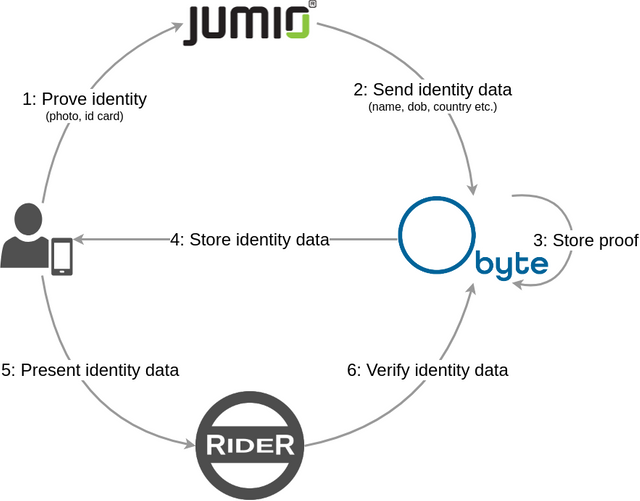
- The user proves their identity directly to Jumio, the KYC provider, by using the Obyte Real Name Attestation Bot.
- Jumio validates the provided documentation and sends the results together with the identity data such as first name, last name, date of birth, document number and type etc. to the bot.
- The Obyte Real Name Attestation Bot then saves the anonymized proof of the attestation in the Obyte DAG (distributed ledger). Note, the user can chose to make their identity data to be public as well but for such sensitive information it is not recommended.
- The Obyte Real Name Attestation Bot offers the identity data to be saved in the user's wallet for storage.
- The user presents some of their identity data for any Obyte enabled applications such as ORider, for example first name, last name and type of the document.
- ORider receives the identity data, however, at this point it cannot be sure if the user hasn't faked the information and so it has to check the Obyte public ledger to make sure if the user provided data validates against the proof saved in step 3.
Conclusion
Developing applications on the Obyte platform comes with a lot of benefits and one of them is the ability to use attested profiles for user identity verification. ORider is practically able to verify with no fees whatsoever if the user has a drivers license without ever touching or storing sensitive information such as the ID number.
As always, don't forget to download the Obyte wallet and check out ORider at https://orider.obyte.app
Congratulations @pmiklos! You have completed the following achievement on the Steem blockchain and have been rewarded with new badge(s) :
Click here to view your Board
If you no longer want to receive notifications, reply to this comment with the word
STOPHello @pmiklos! This is a friendly reminder that you have 3000 Partiko Points unclaimed in your Partiko account!
Partiko is a fast and beautiful mobile app for Steem, and it’s the most popular Steem mobile app out there! Download Partiko using the link below and login using SteemConnect to claim your 3000 Partiko points! You can easily convert them into Steem token!
https://partiko.app/referral/partiko